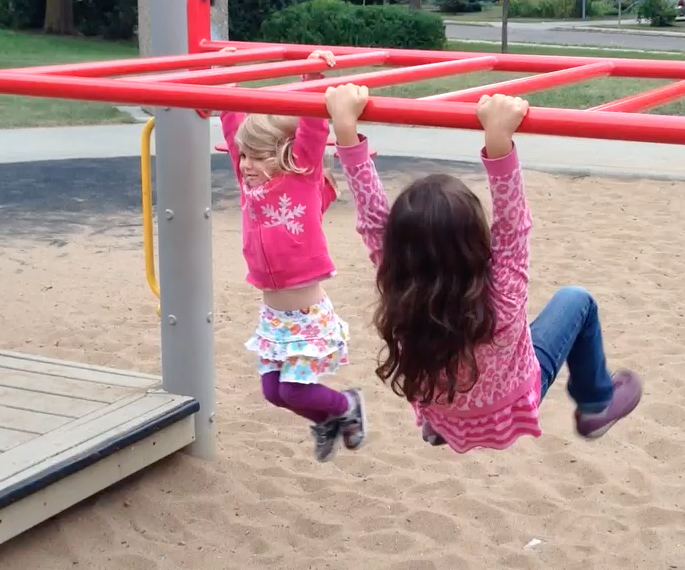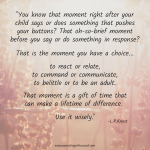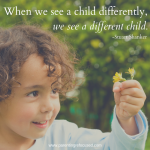An important part of Positive Discipline involves looking at mistakes as opportunities for learning. This is something I’ve personally struggled with because making mistakes can be triggering. I feel anxious and embarrassed and I just want to hide. I grew up subconsciously thinking that if I could just avoid trying anything too difficult, I could also avoid the feeling of embarrassment from not being able to do it. So if I couldn’t do it perfectly (or fairly close) right away, I just couldn’t do it.
Obviously that hasn’t worked out very well for me! Even getting to the point where I could take what I’ve learned and share with others on this larger scale has taken years of convincing myself, when others would’ve just started right away. I’ve had to take a step back and think about what that behaviour is teaching my children, though. If I won’t even try because I’m afraid it won’t work out, what are they learning? One very clear example of that sticks out in my mind. I was thankful I had just read a post about this topic a few weeks before it happened.
We’d taken the girls to the park and E was on the monkey bars, just sailing across back and forth- showing off the new tricks she’d learned. She was having so much fun, and I was right there cheering her on. Until she joyfully exclaimed that it was my turn now. And of course right away I said no, I couldn’t do the monkey bars. I’m just not strong enough, and I never did them as a kid either that I can remember. But she didn’t miss a beat.
“Just try!”
…
Now, if you know me, you know I’m a kid person. I love kids. I just naturally gravitate toward them, and will hang out with them even if there are other adults around (okay, sometimes that’s just me avoiding the awkwardness of talking with other adults). So it’s not at all unusual for her to expect me to play on the equipment with her. But talking and running around is one thing. Hanging from the monkey bars when I already know I’m completely unable to even reach out for the next bar- and hoping no other parents see? Yeah no. My automatic thought was to laugh and tell her I just can’t do it so it would be silly for me to try.
But then I paused. Silly for me to try because I can’t do it? I heard those words in my head and remembered the post I’d read. And I realized I was about to teach her something right there in how I responded. Is “Just try” simply a phrase that I say to her, or is it something I truly value enough to do it myself too? Am I willing to show her that it’s okay not to be perfect right away (or ever)- even if people are watching and might be judging me?
I looked into those smiling and encouraging eyes, and I chose to be brave. I chose to model being vulnerable and embracing my imperfection. I hung there from that first bar and struggled, but I couldn’t make it to the next bar. And then I laughed and jumped down.
“Good try!”
Thanks, E. I’m getting there.
“The courage to be imperfect” is a phrase that’s attributed to psychologist Sophie Lazarsfeld, based on principles by psychologist Alfred Adler. It was later made popular by psychiatrist Rudolf Dreikurs, who founded the Institute of Adlerian Psychology, which became known as Adler University in 2015. The Positive Discipline Parenting and Classroom Management Model is based on the work of Alfred Adler and Rudolf Dreikurs.








Comments